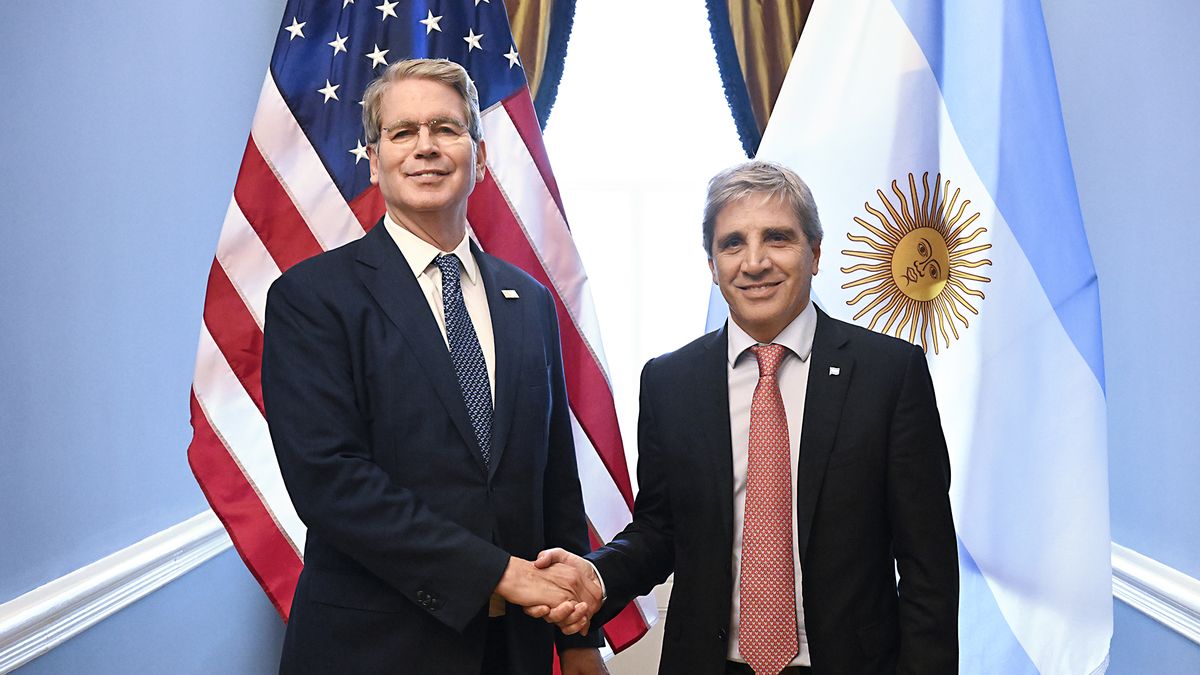Bessent is not just any official. He was George Soros’s right-hand man; the operator who in 1992 contributed to collapse the Bank of England during “Black Wednesday”, generating profits of more than a billion dollars for the Quantum fund (Mallaby, 2010). That operation – based on the conviction that the pound sterling was overvalued and that no central bank could sustain its parity – became the founding myth of contemporary financial capitalism; the empirical demonstration that the power of markets could bend the will of States.
Thirty years later, Bessent returns to the scene, no longer as an external speculator but as delegated manager of a sovereign Treasury. In October 2025, as the Argentine economy plunged into a currency run, the US Treasury – under its coordination – sold dollars and bought pesos …to contain the crisis?, while formalizing a swap for 20 billion dollars (Scott Bessent announced…, 2025). This operation, presented by Caputo as “technical support”, It involved a qualitative leap; the direct intervention of a foreign State in the domestic foreign exchange market.
The hypothesis of this work – in two installments – is clear; The financial policy of Argentina 2025 does not respond to Argentine national rationality, but to foreign geopolitical coherence. Donald Trump has publicly projected his imperial desires; He talked about annexing Canada, controlling Greenland and Panama. Argentina’s implementation begins with the Wall Street institutional logicembodied in a network of former traders – Caputo, Bausili, Quirno, Daza, Werning – whose training, language and horizon of belonging reproduce the New York financial culture. Based on documentary sources, official statements and specialized literature, it will be demonstrated that this framework configures a new form of dependency; informational-financial subordinationwhere data flows, investment decisions and exchange interventions are governed by algorithms, banks and hedge funds based in the United States.
Scott Bessent and predatory financial power: “from London to Buenos Aires”
Scott Bessent was trained in the most radical school of financial capitalism, that of the hedge fund macros. At Soros Fund Management He learned that wealth is not produced; is captured at the right moment by leveraging information. According to Mallaby (2010), it was Bessent who identified that British mortgage exposure, dependent on variable rates, would make it impossible to sustain the exchange rate within the European Exchange Rate Mechanism. This analytical intuition led to the $10 billion bet that, on September 16, 1992, broke the resistance of the Bank of England.
The success of that operation was not coincidental but structural; marked the passage from an industrial stage to a financial one in global accumulation. Since then, the figure of trader-macro replaced the traditional banker; Risk ceased to be an anomaly and became the central instrument of profitability. What Mallaby calls “the invention of the hedge fund” is, in reality, the institutionalization of imbalance as a model of power.
Bessent internalized that logic. Decades later, his profile as a “technical manager” hides a history of speculative operations against sovereign currencies. The londonization His method – betting against central banks and then being summoned to “advise” them – is replicated today in Buenos Aires. The official report from October 2025 details that The US Treasury intervened in the Argentine exchange market “by executing orders to sell dollars and keep pesos”channeled by JP Morgan, Santander and Citi (Scott Bessent announced…, 2025). In operational terms, it was a reversal of Black Wednesday; now the Argentine Central Bank voluntarily accepted the presence of the predator.
The motivations were not purely financial. As Reingold (2005) recalled, the Wall Street industry is built on a network of perverse incentives where insider information and the sale of influence are as valuable as the assets being traded. Bessent represents that culture; that of the intermediary who turns each crisis into an opportunity for control. In the words of Ney (1974), “the market is not a neutral resource allocation mechanism, but a power transfer system.”
In that sense, contemporary Argentina repeats the scheme of Great Britain in 1992, but with a crucial difference; It is not the object of an external attack but the subject of a subordinate alliance. Caputo does not confront Bessent; hires him. That forex trading outsourcing -presented as “process optimization”- is equivalent, in practice, to a transfer of political control. Decisions about when, how much and how to intervene in the Argentine exchange market now depend on an office in New York.
The result is a new type of dependency; the algorithmic dependency. Risk models, capital flow projections, and execution orders are processed in systems that respond to Federal Reserve standards and Treasury interests. Thus, the autonomy of the Argentine Central Bank is diluted in the cloud of a global market that decides, in milliseconds, the value of its currency.
Luis Caputo and “the privatization of the Treasury.” The Argentine nexus of Wall Street
Luis Caputo It embodies the perfect synthesis between domestic technocracy and global finance. His career – from Deutsche Bank to JP Morgan, and from there to the Ministry of Finance during the Macri administration – shows ideological continuity; the conviction that the market is more efficient than the State, even in governing the State. Under his direction, the Argentine economy adopts a model that can be described as privatization of fiscal and monetary sovereignty.
This October 2025 episode sums up that philosophy. When the US Treasury executes dollar sales orders through three global banks, Caputo celebrates the fact as a “sign of international confidence.” But what seems like a rescue is actually a transfer. The operation was accompanied by the granting of a currency swap for 20,000 million dollars, of conditional use (Scott Bessent announced…, 2025). That is to say; Caputo outsourced not only the intervention in the market, but the availability of reserves itself.
This functional dependence is reinforced by cultural affinity. Caputo belongs to a generation of local financiers trained in the Wall Street ethos. His team -Bausili, Quirno, Daza, Werning- shares the same matrix; traders, not planners. In this environment, macroeconomics is reduced to a portfolio of assets; fiscal policy, to a marketing strategy for investors. The notion of public good disappears; everything is performance, reputation, spread.
The transfer of business rationality to the field of the State is not new, but in the Argentine case it reaches an unusual intensity. own Reingold (2005) warned that Wall Street’s corporate culture encourages structural irresponsibility; “When everyone charges commission, no one assumes the losses”. In that logic, Caputo can present a foreign bailout as a national victory; While sovereign bonds rise 8%, the Treasury loses control of its instruments.
More than a technocrat, Caputo acts as sovereignty broker. Its role is to mediate between the liquidity needs of the Argentine State and US interests.offering in exchange predictable policies, fiscal discipline and geopolitical alignment. There is ideology and arbitration; transform economic weakness into a negotiable asset.
What has been presented as “openness to the world” is, in reality, the consummation of an asymmetry. Argentina no longer negotiates with Wall Street; is part of Wall Street. Its Treasury, its reserves and its rates are integrated into the North American financial architecture, except for the gold that was sent to Great Britain. According to Ney (1974), this type of capture is sustained by three mechanisms: information dominance, liquidity control and symbolic legitimation. Caputo fulfills all three functions: provides data, guarantees flows and grants speech.
The result is a profound mutation of the State. The Ministry of Economy is transformed into a trading desk; monetary policy, in a series of orders executed by foreign banks; the national budget, in a risk folder. When Bessent announces from Washington that “Argentina faces a moment of serious illiquidity,” an external analyst does not say it; It is declared by the operator that manages the country’s accounts. At that moment, Argentina ceases to be an economic subject. The market becomes its new seat of sovereignty, and the former traders – now ministers – act as its privileged interpreters… (to be continued… Part II)
*Doctor in Political Science, on YouTube: @DrPabloTigani, on X: @pablotigani
Source: Ambito
David William is a talented author who has made a name for himself in the world of writing. He is a professional author who writes on a wide range of topics, from general interest to opinion news. David is currently working as a writer at 24 hours worlds where he brings his unique perspective and in-depth research to his articles, making them both informative and engaging.




